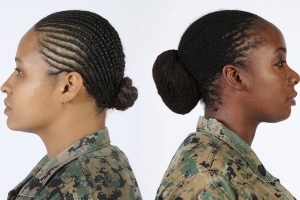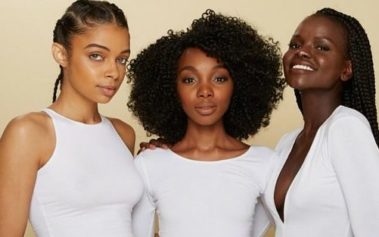Did you know that many of the commercial black hair care products today include harmful, and potentially carcinogenic ingredients? Could this possibly be the reason why so many African-American women are “going natural?”
Know what you are putting in your hair, what’s the purpose of the product and what are the side effects.
Research shows that African-American women spend more on hair products than any other ethnic group, but we have the least knowledge of how the products we use affect us.
One of many harmful products that African-American women use regularly is the chemical relaxer, applied to straighten the hair. Almost all of the currently available hair relaxers tested by the Environmental Working Group were considered highly toxic and expose users to the risk of breast cancer, birth defects, allergic reactions, hormone disruption, immune system toxicity, estrogen and endocrine disruption, premature puberty, heart disease and other chronic health problems.
Hair straighteners commonly used by white women were found to be relatively safe.
How can they do this you ask? In the United States it’s perfectly legal. The $50-billion, personal-care product industry has argued for years that small amounts of toxic chemicals in a product is OK. But is it really?
In addition to relaxers, there are other products that contain chemicals of concern, including skin lighteners, dandruff shampoos, conditioners, dyes (especially those containing coal tar), nail polish treatments, fragrance and scented products.
In the 1960s during the Black Power movement, African-Americans wore Afros and sported natural hair because hair straightening was believed to harm the brain – physically, and emotionally.
In the 1970s Americans became “environmentally friendly,” educating themselves on the damage Western nations were doing to citizens and the planet. But how much research was done to uncover the link between African-American women’s health and the hair and beauty products they use regularly? How are the toxic chemicals linked to illnesses that are prevalent in the African-American community?
A team of researchers led by Dr. Lauren Wise of Boston University’s Slone Epidemiology Center found strong evidence linking African-American women’s hair relaxers and an increase in uterine fibroids.
Fibroids are noncancerous growths that develop in a woman’s uterus. Fibroids are common, but African- American women tend to have them at a higher rate than other races, and they experience more symptoms from them.
Stay as informed as possible. Read labels. Ingredients are listed on labels according to the amount in the product – meaning the more of a particular ingredient in a product, the closer to the top of the list the ingredient will be. Listed here are five chemicals in many hair products that are toxic and why:
1. Coal Tar. This is found in some hair dyes and dandruff shampoos and build up in our bodies to cause cancer.
2. Parabens. Propyl, methyl, butyl, or ethyl are cheap preservatives that are used to inhibit microbial growth in skin care and hair products that are highly toxic and cause allergic skin reactions.
3. Fragrance. The word “fragrance” on the label indicates use of a synthetic fragrance made in a test tube from any of 200 synthetic chemicals. They can be toxic, can bio-accumulate and cause headaches, skin irritation, lung problems, memory impairment and dizziness.
4. Lye aka sodium hydroxide. A potent chemicals found in relaxers , soap, shampoo, and conditioners. A white crystalline substance that readily absorbs carbon dioxide and moisture from air. It is caustic and can burn right through skin. It can cause scalp damage, drastic drops in blood pressure, throat swelling, blood in stool, loss of vision and can be deadly if ingested.
5. Sulfates. Detergents that produce lather. Found in a variety of beauty products like soap, shampoo and body wash. They break up break up grease on the hair, remove natural oils and dirt. They can also cause cancer.
Written by Chicly Natural (Shardae’ Walker)
Contact info: Instagram @shardae_naturalcutie85
Facebook Chicly Natural
Yahoo [email protected]



